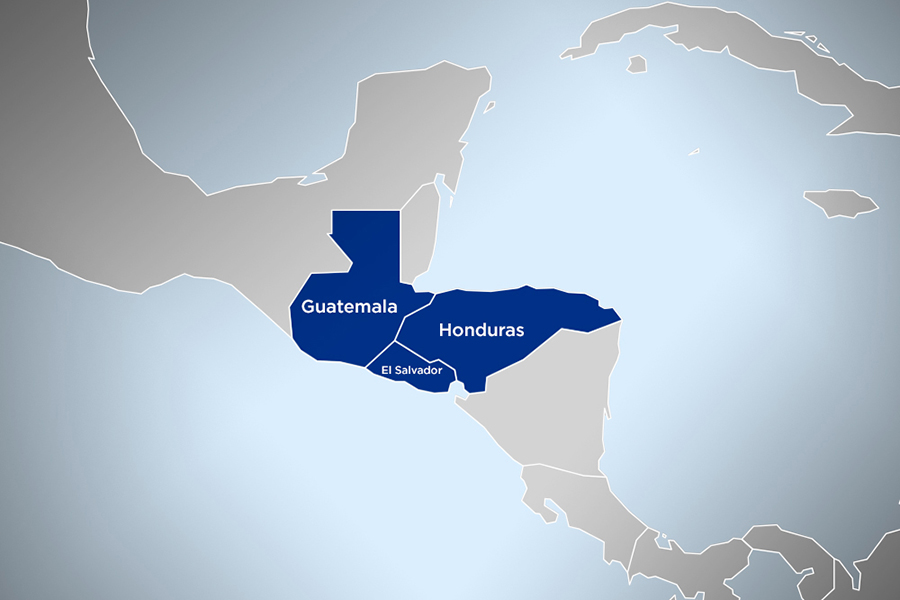Estimated reading time: 4 minutes
In the first two months of 2024, El Salvador, Guatemala, and Honduras—the countries forming Central America’s Northern Triangle—received a combined total of $5.57 billion in family remittances, a significant increase from the previous year.
The economic lifelines stretching from migrants in foreign lands back to their homes in Central America have grown even more vital in early 2024. According to the latest data from the International Organization for Migration (IOM), family remittances to El Salvador, Guatemala, and Honduras have collectively soared to $5.574 billion between January and February, marking a 4.9% increase from $5.312 billion during the same period in 2023.
This notable rise in remittance flows is more than just financial transactions; it’s a testament to the deep ties that bind the diaspora to their countries of origin and reflect the economic dynamics within these nations. These remittances are crucial economic lifelines for many families, providing a significant portion of the GDP in these countries.
Detailed Breakdown of Remittances
- El Salvador received $1.218 billion, leveraging its large expatriate community in the United States, which exceeds 2 million people. For many Salvadorans, remittances are the backbone of household income, predominantly spent on service consumption and daily living expenses.
- With the highest receipt among the trio, Guatemala garnered $2.996 billion. The remittances to Guatemala play a critical role in rural and urban economies, often funding education, healthcare, and housing, thereby incrementally elevating living standards.
- Honduras received $1.361 billion, which similarly contributes significantly to its economy, often directed towards basic needs and local investments, highlighting the role of remittances in poverty alleviation and social development.
Economic and Social Implications
The surge in remittances to the Northern Triangle is significant against the backdrop of persistent migration. More than 500,000 individuals from these countries attempt to reach the United States annually in search of better living conditions. This migration is driven by a combination of factors, including economic hardship, violence, and the lure of higher wages abroad. The money sent home supports day-to-day survival and represents a form of investment in the future of migrants’ families and their communities.
In El Salvador, remittances account for a substantial national GDP. Economists highlight that these funds are primarily spent on consumption, stimulating local economies and underscoring the reliance on external financial inflows. In Guatemala and Honduras, the situation is similar, with remittances acting as a buffer against economic instability.
Challenges and Opportunities
While remittances contribute to immediate financial relief for families, they also present challenges such as dependency on external economies and vulnerability to economic downturns in host countries. Moreover, the reliance on remittances can sometimes deter local economic development and entrepreneurship.
The increase in remittance flows also presents opportunities. Governments in the Northern Triangle increasingly recognize the need to channel these funds into more productive investments to foster economic development. Initiatives aimed at enhancing financial literacy among recipients and encouraging investment in local enterprises are steps in this direction.
Policy Implications and Future Prospects
The robust remittance growth has policy implications, particularly regarding economic policy and migration management. For policymakers in the Northern Triangle, there’s a balancing act between leveraging remittances for economic stability and tackling the root causes of emigration, such as poverty and lack of opportunities.
Looking ahead, the role of remittances in the economies of El Salvador, Guatemala, and Honduras is likely to remain significant. However, these countries must cultivate more diverse economies for long-term sustainability, providing opportunities for their home populations. This includes improving the business environment, enhancing educational opportunities, and creating jobs that can compete with those offered abroad.
The continuous rise in remittances to the Northern Triangle of Central America underscores not only the enduring bond between migrants and their home countries but also the critical role these funds play in the regional economy. As these countries navigate their complex economic landscapes, effectively managing remittance flows will be crucial in shaping their future economic trajectories. ( https://latinamericanpost.com/economy-en/remittances-surge-in-central-americas-northern-triangle/)



































